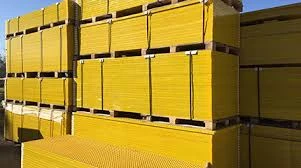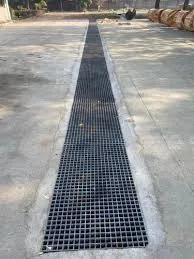
-
 Afrikaans
Afrikaans -
 Albanian
Albanian -
 Amharic
Amharic -
 Arabic
Arabic -
 Armenian
Armenian -
 Azerbaijani
Azerbaijani -
 Basque
Basque -
 Belarusian
Belarusian -
 Bengali
Bengali -
 Bosnian
Bosnian -
 Bulgarian
Bulgarian -
 Catalan
Catalan -
 Cebuano
Cebuano -
 China
China -
 China (Taiwan)
China (Taiwan) -
 Corsican
Corsican -
 Croatian
Croatian -
 Czech
Czech -
 Danish
Danish -
 Dutch
Dutch -
 English
English -
 Esperanto
Esperanto -
 Estonian
Estonian -
 Finnish
Finnish -
 French
French -
 Frisian
Frisian -
 Galician
Galician -
 Georgian
Georgian -
 German
German -
 Greek
Greek -
 Gujarati
Gujarati -
 Haitian Creole
Haitian Creole -
 hausa
hausa -
 hawaiian
hawaiian -
 Hebrew
Hebrew -
 Hindi
Hindi -
 Miao
Miao -
 Hungarian
Hungarian -
 Icelandic
Icelandic -
 igbo
igbo -
 Indonesian
Indonesian -
 irish
irish -
 Italian
Italian -
 Japanese
Japanese -
 Javanese
Javanese -
 Kannada
Kannada -
 kazakh
kazakh -
 Khmer
Khmer -
 Rwandese
Rwandese -
 Korean
Korean -
 Kurdish
Kurdish -
 Kyrgyz
Kyrgyz -
 Lao
Lao -
 Latin
Latin -
 Latvian
Latvian -
 Lithuanian
Lithuanian -
 Luxembourgish
Luxembourgish -
 Macedonian
Macedonian -
 Malgashi
Malgashi -
 Malay
Malay -
 Malayalam
Malayalam -
 Maltese
Maltese -
 Maori
Maori -
 Marathi
Marathi -
 Mongolian
Mongolian -
 Myanmar
Myanmar -
 Nepali
Nepali -
 Norwegian
Norwegian -
 Norwegian
Norwegian -
 Occitan
Occitan -
 Pashto
Pashto -
 Persian
Persian -
 Polish
Polish -
 Portuguese
Portuguese -
 Punjabi
Punjabi -
 Romanian
Romanian -
 Russian
Russian -
 Samoan
Samoan -
 Scottish Gaelic
Scottish Gaelic -
 Serbian
Serbian -
 Sesotho
Sesotho -
 Shona
Shona -
 Sindhi
Sindhi -
 Sinhala
Sinhala -
 Slovak
Slovak -
 Slovenian
Slovenian -
 Somali
Somali -
 Spanish
Spanish -
 Sundanese
Sundanese -
 Swahili
Swahili -
 Swedish
Swedish -
 Tagalog
Tagalog -
 Tajik
Tajik -
 Tamil
Tamil -
 Tatar
Tatar -
 Telugu
Telugu -
 Thai
Thai -
 Turkish
Turkish -
 Turkmen
Turkmen -
 Ukrainian
Ukrainian -
 Urdu
Urdu -
 Uighur
Uighur -
 Uzbek
Uzbek -
 Vietnamese
Vietnamese -
 Welsh
Welsh -
 Bantu
Bantu -
 Yiddish
Yiddish -
 Yoruba
Yoruba -
 Zulu
Zulu
Feb . 18, 2025 04:02
Back to list
fiberglass food grade equipment a closer look at its features and ...
Fiberglass food grade equipment represents an evolution in material technology tailored for industries that require both durability and compliance with stringent safety standards. This unique category of equipment has become invaluable for sectors ranging from food processing to pharmaceutical manufacturing, where maintaining a hygienic environment is paramount. Here's an in-depth exploration of the features and advantages that make fiberglass food grade equipment a standout choice.
Safety is another cornerstone in the design of fiberglass food grade equipment. Due to its electrical insulating properties, fiberglass minimizes the risk of electrical hazards, thereby enhancing the safety of workers who operate or maintain this equipment. Moreover, this material is customizable, allowing manufacturers to tailor equipment to specific requirements and standards, further enhancing operational safety and efficiency. One of the most appealing aspects of fiberglass food grade equipment is its cost-effectiveness. While the initial investment may be higher than other options, the long-term savings are notable. The durability and low maintenance requirements translate to fewer replacements and repairs, demonstrating fiberglass as a wise investment for companies seeking sustainable solutions in their manufacturing processes. Environmental considerations also play a role in favoring fiberglass solutions. Fiberglass production and recycling have a lesser environmental impact than the extraction and processing of metals, aligning with the growing need for greener industrial practices. Companies leveraging fiberglass equipment contribute positively to their carbon footprint reduction efforts, showcasing their commitment to sustainability alongside operational efficacy. The advent of fiberglass food grade equipment underscores a shift towards more innovative and reliable materials tailored for modern industrial needs. It combines strength, adaptability, and compliance in a manner that ensures industries can maintain the highest possible production standards. From extending the lifespan of equipment to ensuring unparalleled hygiene and safety, fiberglass emerges as an exemplary choice for forward-thinking businesses. For experts and decision-makers in industries reliant on food grade equipment, incorporating fiberglass technology not only meets today’s demands but also sets a new benchmark for future advancements. This material embodies a progressive step in industrial design, providing unmatched benefits that align with both economic and environmental goals.


Safety is another cornerstone in the design of fiberglass food grade equipment. Due to its electrical insulating properties, fiberglass minimizes the risk of electrical hazards, thereby enhancing the safety of workers who operate or maintain this equipment. Moreover, this material is customizable, allowing manufacturers to tailor equipment to specific requirements and standards, further enhancing operational safety and efficiency. One of the most appealing aspects of fiberglass food grade equipment is its cost-effectiveness. While the initial investment may be higher than other options, the long-term savings are notable. The durability and low maintenance requirements translate to fewer replacements and repairs, demonstrating fiberglass as a wise investment for companies seeking sustainable solutions in their manufacturing processes. Environmental considerations also play a role in favoring fiberglass solutions. Fiberglass production and recycling have a lesser environmental impact than the extraction and processing of metals, aligning with the growing need for greener industrial practices. Companies leveraging fiberglass equipment contribute positively to their carbon footprint reduction efforts, showcasing their commitment to sustainability alongside operational efficacy. The advent of fiberglass food grade equipment underscores a shift towards more innovative and reliable materials tailored for modern industrial needs. It combines strength, adaptability, and compliance in a manner that ensures industries can maintain the highest possible production standards. From extending the lifespan of equipment to ensuring unparalleled hygiene and safety, fiberglass emerges as an exemplary choice for forward-thinking businesses. For experts and decision-makers in industries reliant on food grade equipment, incorporating fiberglass technology not only meets today’s demands but also sets a new benchmark for future advancements. This material embodies a progressive step in industrial design, providing unmatched benefits that align with both economic and environmental goals.
Related Products









